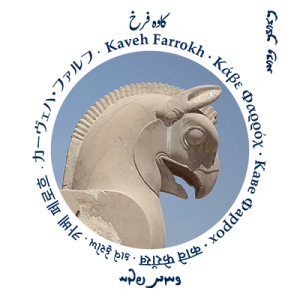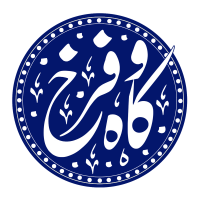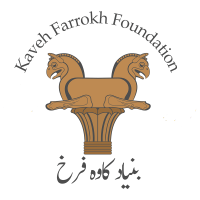The article “International Community Celebrates SA’ADI an Iranian Poet” was originally written by Dr. Mohammad Ala for the OpEd News outlet on May 27, 2020. Dr. Mohammad Ala, is the winner of the 2019 Région Nouvelle-Aquitaine Creativity Award, the 2019 World Wildlife Film Award, the 2018 Cinema Vérité Award, the 2018 Panda Award and the 2013 Grand Prix Film Italia Award.
Kindly note that the version printed below has been significantly edited by Kavehfarrokh.com from the original version.
==================================================================================
The following poem composed by the classical Persian poet Sa’adi (c.1184-1292) in 1258 CE is from his book, the Gulistan/Golestan (chapter 1, story 10):
بنیآدم اعضای یک پیکرند
که در آفرينش ز یک گوهرند
چو عضوى بهدرد آورَد روزگار
دگر عضوها را نمانَد قرار
تو کز محنت دیگران بیغمی
نشاید که نامت نهند آدمی
One of the translations into English from the above Saadi poetry is as follows:
Human beings are members of a whole,
In creation of one essence and soul.
If one member is afflicted with pain,
Other members uneasy shall remain.
If you have no sympathy for human pain,
The name of human you cannot retain
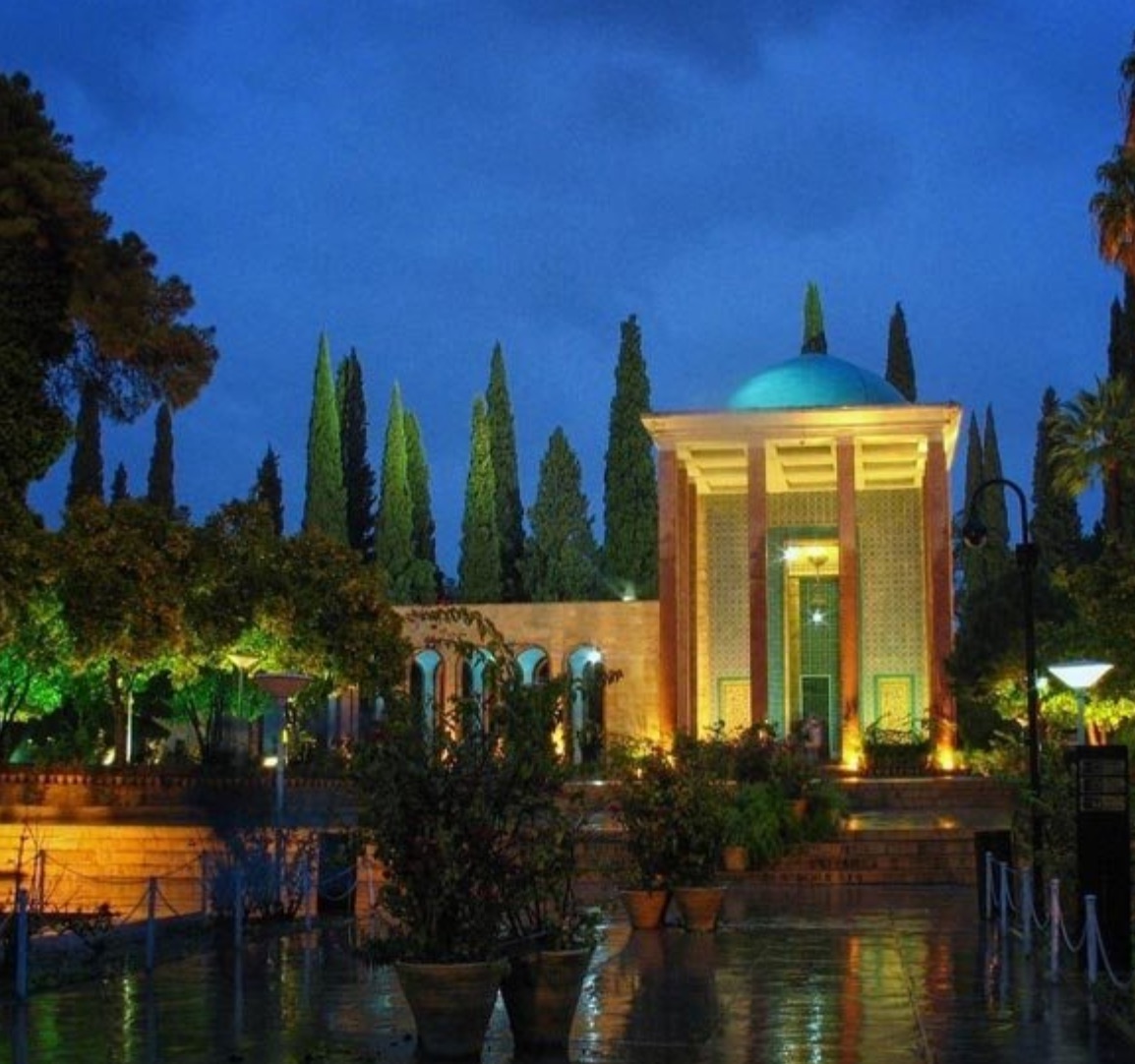
An evening view of Saadi’s tomb in Shiraz, Iran (Source: ITTO). Saadi was born and passed away in Shiraz.
This poem has been displayed at United Nations’ entrance hall since late 1960s, in addition to a large Persian carpet, a gift given by the Iranian people in 2005 to the world body.
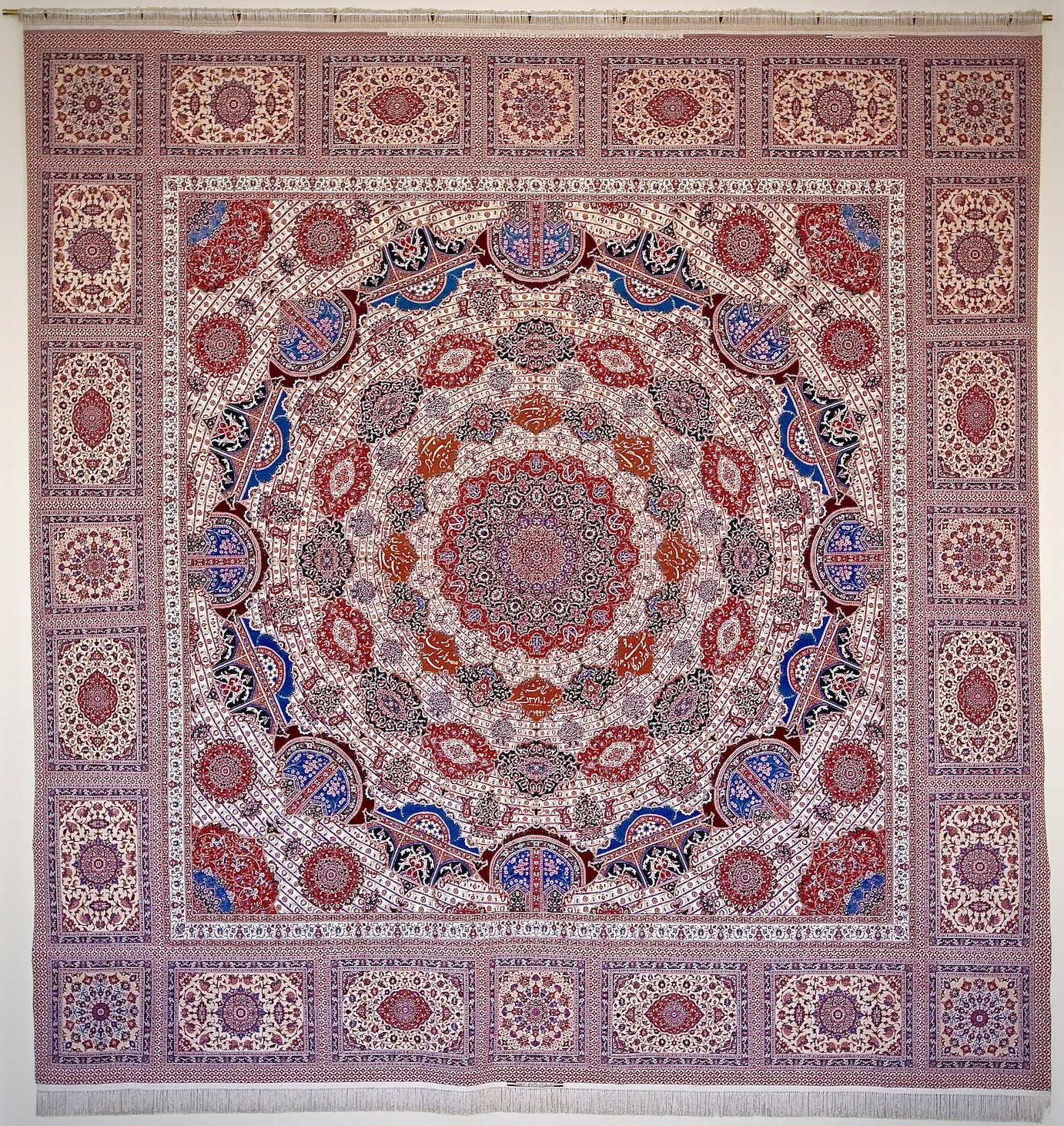
An exemplary Persian carpet situated in the United Nations (UN) Headquarters in New York; as noted by Huffinton Post the carpet is “… located along the interior walls of the North Delegates Lounge …” in the UN building. The Persian carpet which features the Persian poetry Saadi, was presented to the United Nations in 2005, (Photo credit: UN Photo/Mark Garten in Huffington Post). Despite the non-political nature of the Iranian populace – who are distinct from the theocratic system currently ensconced in Iran – Western media and political outlets routinely (and simplistically) conflate the political system with the populace who remain targeted by draconian economic and cultural sanctions.
Saadi’s poetry has been translated into multiple languages; below is an Italian translations of Saadi’s original Persian poetry:
“Gli esseri umani sono membri di un tutto, In creazione di un’essenza ed un’anima. Se un membro è afflitto dal dolore, Gli altri membri saranno a disagio. Se non hai compassione per il dolore umano, Non puoi mantenere il nome di essere umano”.
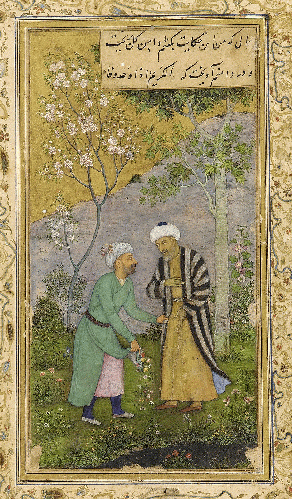
A Mughal manuscript (c. 1645) of Saadi’s literary text the Gulistan, portraying the Iranian poet (Saadi at the right) in a Rose garden (Source: Public Domain).
It should be noted that Iranian poets, among other Iranian contributions to world civilization are routinely ignored and distorted due to the long-standing biased views taken by several Western countries towards Iran, a process that has been in place since the post-renaissance era … for more on this, consult the following sources:
- Farrokh, K., Vasseghi, Sh., & Sánchez-Gracia, J. (2019). Western Persephobia: a brief overview and possible reasons for its origins (Part 2). Persian Heritage, 95, pp.22-23.
- Farrokh, K., Vasseghi, Sh., & Sánchez-Gracia, J. (2019). Western Persephobia: a brief overview and possible reasons for its origins (Part 1). Persian Heritage, 94, pp.23-24.
- Sheda Vasseghi (2017). Positioning Of Iran And Iranians In Origins Of Western Civilization. PhD Dissertation, University of New England, Academic advising Team: Marylin Newell, Laura Bertonazzi, Kaveh Farrokh.
As the international community celebrates the humanistic legacy of Saadi Shirazi , the below video by Alireza Ghorbani (علیرضا قربانی) is shared with the global populace, especially as humanity now confronts, as a collective, the menace of the Covid-19 pandemic (it is also hoped that politicians and religious leaders of all persuasions around the world will also watch the video):
The video by Alireza Ghorbani (علیرضا قربانی) provides an international appreciation of Saadi’s immortal verses celebrating the unity of humanity. All of humanity and human civilization in turn, needs to cast aside its petty political differences in this critical time in order to unify and defeat the COVID-19 pandemic.

